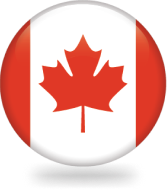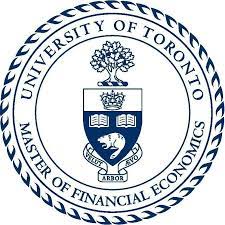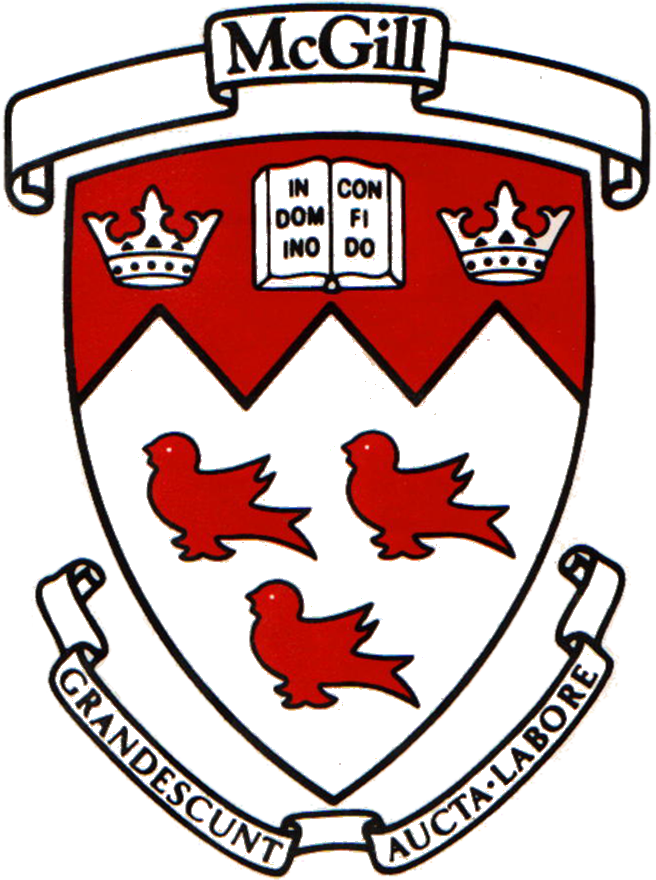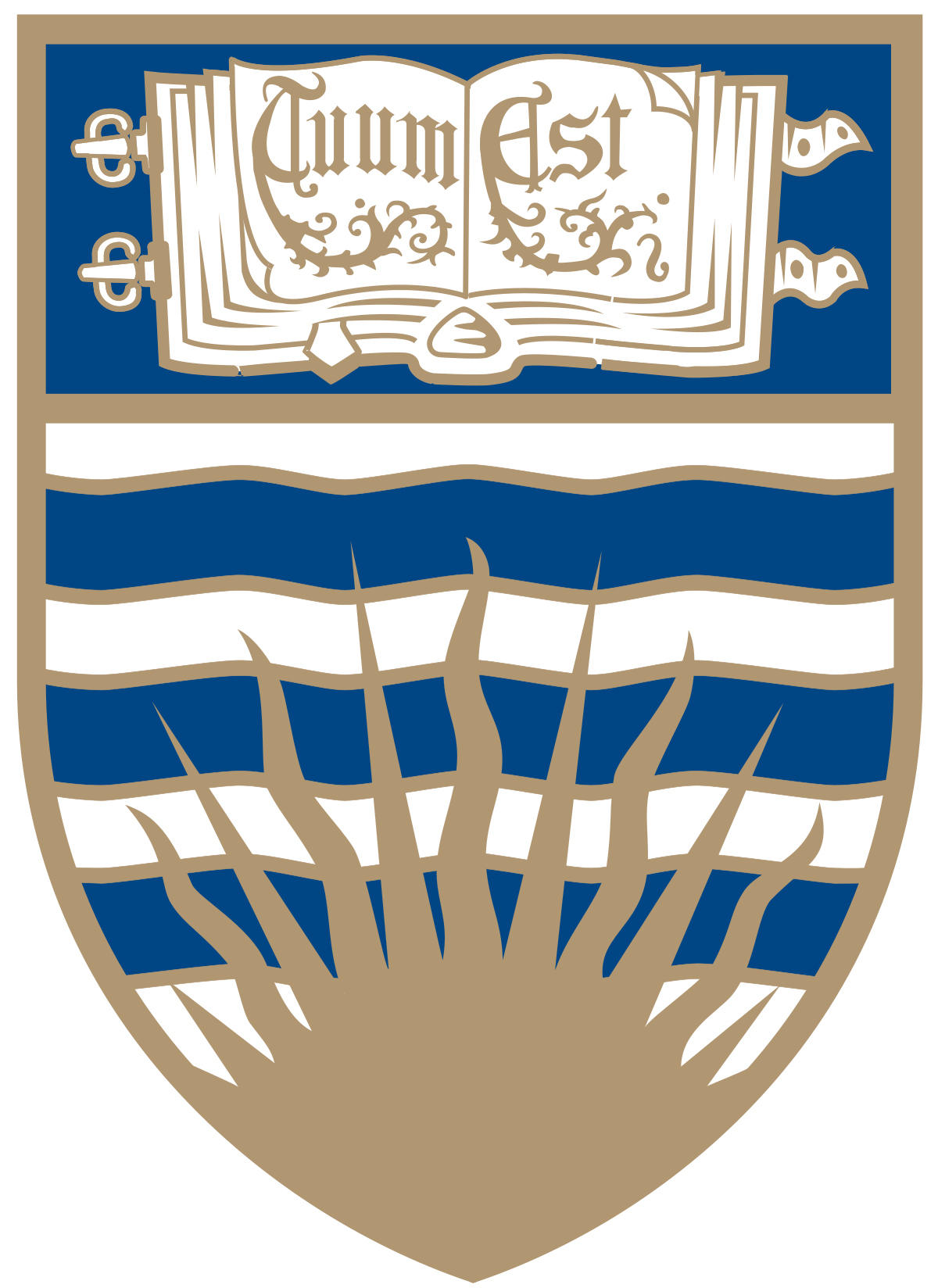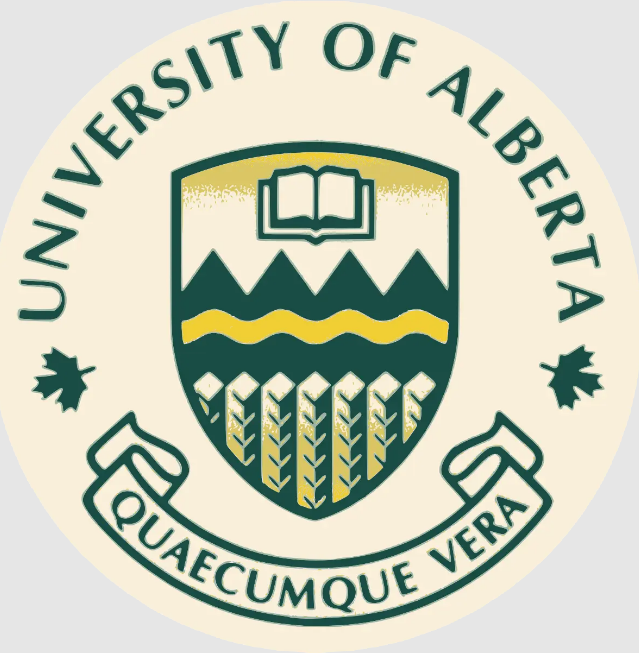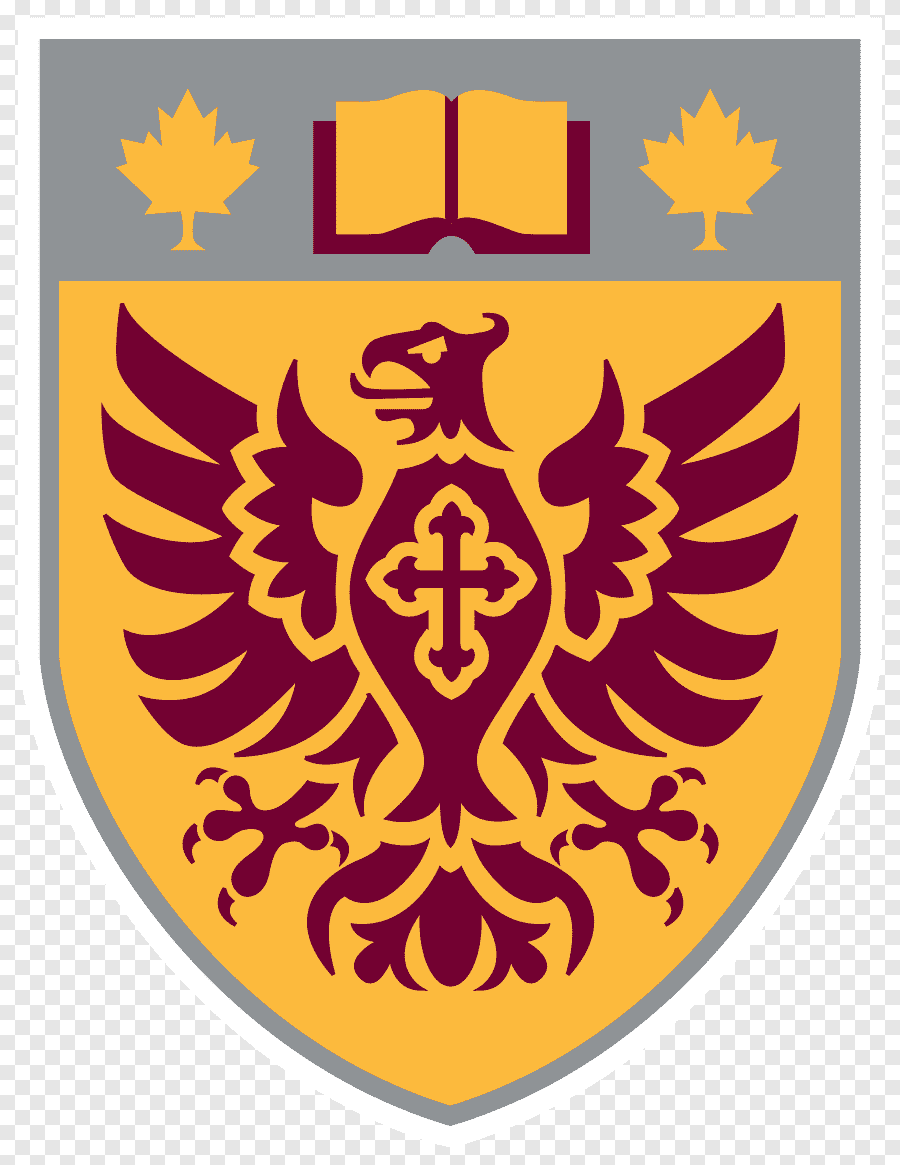Top Universities in CANADA
When deciding which university to study at, it is crucial that you also look at the world university rankings. Study in CANADA offers you access to some of the world’s top institutions.
More About Canada
When choosing a university in Canada, it's essential to consider world rankings. Canada is home to top institutions like the University of Toronto, McGill University, and the University of British Columbia, which are consistently ranked among the best globally. These universities offer high-quality education, innovative research opportunities, and diverse student communities. Additionally, Canada provides a welcoming environment for international students with scholarships and financial aid options, making it a great destination for higher education.
Documents Required to Study in Canada
- Letter of Acceptance
- Proof of Funds
- Proof of Identity
- Medical Exam
- English/French Proficiency Test Scores
- Statement of Purpose (SOP)
- Previous Education Documents
- Study Plan
- Police Clearance Certificate
- Application Form
- Valid Passport
Documents Required for Study Visa in Canada
- Letter of Acceptance
- Proof of Funds
- Statement of Purpose (SOP)
- Academic Transcripts
- Proof of Identity
- English/French Proficiency
- Medical Examination
- Police Clearance Certificate (if required)
- Valid Passport
Popular Courses In CANADA
Canada hosts more than 250,000 international students and has experienced a huge increase in demand from overseas in recent years. The country is not only popular for its renowned universities but a variety of courses. Here are the popular courses that you can choose for studying in Canada.

Scholarships in CANADA
- Vanier Canada Graduate Scholarships
- Lester B. Pearson International Scholarship Program
- Canadian Commonwealth Scholarship Program
- UBC International Leader of Tomorrow Award
- University of Toronto International Scholar Awards
- York University International Student Scholarship Program
- Shad Valley Scholarships
- The Canada Graduate Scholarships (CGS)
- Trudeau Foundation Scholarships
- MITACS Globalink Research Award
Study in CANADA: Additional Tips
Deadlines
Be aware of application deadlines, which can vary significantly between institutions.
Research
Each school may have specific requirements, so always check the school’s website for detailed information.
Interviews
Some programs may require an interview as part of the application process.
If you have a specific school or program in mind, it’s best to check directly with them for the most accurate requirements.
Study in Canada- The Roadmap With Class24
With Class24 studying in the CANADA is a structured step by step process which helps the student in getting application through, understanding visa procedure and selecting best courses for the student. The thorough support provided by this allows the students to make the best decision they can to support their academia in the CANADA.
Highest-Paying Jobs in Canada
There are top paying jobs in Canada in various industries. The list is topped with positions in the medical field including doctors, surgeons and dentists with salaries climbing up to CAD 200,000 every year. For example, software engineer, data scientist and IT manager are categories where IT specialists are in high demand, and they usually receive salaries starting from CAD 100,000. Additionally, corporate roles including senior executives and CFOs and marketing directors are paid well and sometimes come with bonus and stock options. Salaries of legal professionals, as lawyers and judges, are also quite high, especially in corporate law. Particularly if you get into petroleum, electrical and civil engineering, there are handsome wages to be earned. There also is a rising demand for financial analysts, accountants, and actuaries in Canada’s financial sector, where well compensated is another term for well paid. There are also jobs in the aerospace and natural resource industries to which people can make money.
| Job Title | Average Base Salary (2024) |
|---|---|
| Anesthesiologist | ~$450,000 |
| Surgeon (Specialist) | ~$400,000 |
| Oral and Maxillofacial Surgeon | ~$400,000 |
| Obstetrician and Gynecologist | ~$350,000 |
| Psychiatrist | ~$250,000 |
| Physician (General Practice) | ~$220,000 |
| Dentist | ~$200,000 |
| IT Manager | ~$150,000 |
| Software Engineering Manager | ~$140,000 |
| Data Scientist | ~$130,000 |

Get Admission into top CANADA universities with the help of expert counsellors
Save up-to ₹3 Lakhs with us!*
Discuss with Expert for FREEBenefits

High Quality Education
Canada is celebrated for its student-friendly atmosphere. In 2025, three Canadian cities made it to the top 50 in QS Best Cities list.

Various Study Programmes
Canadian universities are globally recognised for their quality yet remain affordable. The QS World University Rankings 2025 features three Canadian institutions in the top 50, with 30 universities in total making the list.

Opportunities post graduation
After graduation, students can benefit from up to 3 years of post-study work rights, enhancing their career prospects.

Cultural diversity
Canada's multicultural environment welcomes students from around the globe, providing a rich tapestry of interactions and perspectives.

Historical and Cultural Experience
Tuition fees in Canada are more affordable compared to the US and UK, offering better return on investment, especially for Indian students.
Monthly Living Expenses in CANADA
Daily living costs in the United Kingdom vary mostly with region and your lifestyle. Here’s an in-depth look:

Accommodation:
On-campus accommodation costs range from CAD 300 to CAD 1,200 per month, while off-campus options can range from CAD 500 to CAD 2,000 per month, depending on location and amenities.

Food and Groceries
Groceries typically cost between CAD 200 to CAD 400 per month, while eating out can range from CAD 10 to CAD 20 per meal.

Transportation:
Public transport costs range from CAD 80 to CAD 150 per month. Biking is free if you own a bike, while taxi or Uber rides typically cost between CAD 10 to CAD 30 per trip.

Miscellaneous Costs
Entertainment expenses range from CAD 50 to CAD 150 per month, while clothing and personal items typically cost between CAD 50 to CAD 100 per month.
Low
High
Study Abroad Made Simple
Increase your chances of admission upto70%
The CANADA is one of the country’s booming economies. This is the reason that international students go to the United States.
Request a CallbackKnow Real Stories of Real People, How They Went from India to Abroad!
Get ready to be inspired by the incredible story of students who turned their dreams into reality.
- Free counselling sessions by an educational consultant
- Database of multiple reputed universities under one roof
- Trustworthy and affordable overseas study plans
Document Get Help in Handling All the Legal Papers
The help that one can get with handling legal documents helps to make sure that all of the required paperwork is managed properly and efficiently. From immigration to contracts, whether you need these services for immigration, contracts for academic requirements, professional services can make it easy for you to travel the thorny legal path. Working with these experts, document preparation, submission deadlines and compliance with local laws are brought under control and thus the risk of making errors or delays is reduced. Without understanding legal documents, people need help with legal document assistance, which ultimately reassures them and saves their time while coming up with important transactions.
Study in Canada 2025- Top Universities, Fees, Requirements, Visa Process, Challenges
Study in Canada presents a good opportunity for international students seeking to further their education because of the number of top universities and colleges offering a variety of programs in areas such as engineering, business and sciences. What’s more, Canada offers some of the top colleges (UG and PG) and the country is the abode of one of the best cordial ambiance to integrate both socially and academically. If you ask yourself how to study in Canada, you will get to know, there are scholarships, work study options, and even, it’s possible to study in Canada for free. The Canada study process is easy, the requirements to study in Canada for international students are clear. As a matter of fact, in some cases, you can study in Canada without IELTS and then a post graduate work permit also gives you the opportunity to gain valuable work experience.
Why Choose to Study in Canada?
There is every reason for Canada to be a destination for international students. Studying in Canada is one of the best choices for the following reasons:
-
Canadian universities and colleges: they are among the best in the world. The University of Toronto, University of British Columbia and McGill University are among the well known institutions for their academic excellence.
-
Reasonable Fee: The course fees and life costs in Canada are far less as compared to the USA or UK, thus a lesser burden to afford a good study in Canada.
-
Multicultural Society: Canada is a place that has a diverse and inclusive culture where students of every origin will feel at home.
-
Offset: Canada offers great post study work opportunities through Canada Post Graduation Work Permit (PGWP), which allows students to work professionally after obtaining their studies.
-
Safe Cities, Beautiful Scenery, High Standard of Living: Canada is home to all of these and more hence it is a great place to live and study in.
-
Scholarships and Financial Aid: there are several study in Canada scholarships as an aid to eliminate the monetary burdens from the shoulders of international students.
Study in Canada Cost
studying in Canada, you should take into account the costs. What the study in Canada cost is dependent on the program, institution, and where it is being held. These costs comprise of tuition fees, accommodation, living expenses and other personal expenditures. The major expenses when planning study in Canada are as outlined in the diagram below.
Study in Canada Tuition Fees
-
Undergraduate (UG) Courses:The Tuition fees charged for study in Canada to pursue UG courses is between CAD 15,000 to CAD 35,000 per year. As for the higher end, programs such as engineering, medicine, and business would fit.
-
PG Courses: Price of PG courses in Canada starts from CAD 10,000 and may go up to CAD 50,000 per year for studying in Canada, however, MBA and special courses cost a little higher.
-
Colleges: Diploma and certificate programs at colleges are more economical because the annual fees are between CAD 10,000 and CAD 20,000.
Study in Canada Top Course Type and Fees
Here are the Top Study in Canada Top Course and Fees discussed below:
|
Course Type |
Low Range (CAD) |
High Range (CAD) |
|
Undergraduate (UG) |
15,000 |
35,000 |
|
Postgraduate (PG) |
10,000 |
50,000 |
|
College Programs |
10,000 |
20,000 |
Study in Canada Living Expenses
The city you choose to live in along with preferences in lifestyle will greatly affect the cost of living in Canada. On an average, the standard living expenses for international students are between CAD 10,000 and CAD 15,000 per year. This estimate covers accommodation, food, transportation and other personal spending. These costs do vary however based on location and your choices.
If you live in a major Canadian city such as Vancouver, Toronto or Montreal you will expect to pay more for day to day life simply because housing demand is high, services are plentiful and the overall level of living standards is higher. In these cities, rent for apartments can be fairly high especially in downtown areas for which you’ll pay a premium to be close to schools, shops and so on. Moreover, food, transportation and other amenities are usually more expensive in urban centers than in smaller cities and towns.
For example, Winnipeg, Halifax and Quebec City are more affordable cities for international students. The cost of rent and daily living like groceries and transportation tends to be lower in these cities and are a hike more affordable. These cities, while they might lack some amenities, job opportunities similar to big cities may not be present, can offer a more peaceful and affordable, low pace of life.
Ultimately, it all comes down to how you live your lifestyle (i.e do you live in a shared accommodation or rent a private apartment and so forth) what you eat and how often you use public transportation.
Study in Canada Top Cities Living expenses
Here are the Study in Canada Top Cities Living Expenses discussed below:
|
City |
Average Rent (CAD/month) |
Transportation (CAD/month) |
Food (CAD/month) |
Total Living Expenses (CAD/year) |
|
Toronto |
1,500 |
120 |
400 |
15,000 |
|
Vancouver |
1,800 |
150 |
450 |
17,000 |
|
Montreal |
1,200 |
90 |
350 |
13,000 |
|
Winnipeg |
1,000 |
100 |
300 |
12,000 |
Is Health Insurance Required Study in Canada?
One must have health insurance in Canada as an international student. The costs vary by province and cost between CAD 600 and CAD 1,000 a year.
Here are the Available Health Insurance Cost discussed below:
|
Province |
Health Insurance Cost (CAD/year) |
Coverage Details |
|
Ontario |
600 |
Basic medical services and prescriptions |
|
British Columbia |
800 |
Full medical care, hospital stays |
|
Quebec |
1,000 |
Full coverage including dental care |
Study in Canada Miscellaneous Costs
In addition, you will need to pay for books, supplies and personal expenses as much as CAD 1,000 to CAD 2,000 per year.
Tip: If you want to survive in Canada university fees then you should find a part time job to manage your study. Students coming from other countries are entitled to work up to 20 hours per week during academic sessions and full time during the breaks.
Study in Canada Requirements
In order to study in Canada as an international student, you must adhere to particular academic and administrative requirements. Below, we develop a detailed requirement overview of the study in Canada for international candidates.
Study in Canada Academic Qualifications
-
For UG Courses: High school diploma or equivalent along with minimum percentage (60–70%, varies according to the course) for the UG courses. The topic may also require you to have specific subjects such as math or science if you want to pursue engineering.
-
For PG Courses: A bachelor’s degree with minimum GPA 3.0 (Out of 4.0) or equivalent. For instance, relevant work experience or a portfolio may be required for entry into some programs (for example, if the program is in architecture or design).
Study in Canada Language Proficiency
Most Canadian institutions need to certify English or French language ability. Common tests include:
-
IELTS: A minimum overall band score of 6.0–7.0 for UG and 6.5–7.5 for PG courses.
-
TOEFL: Typically a score of 80 – 100 (iBT) is required.
-
PTE: The institutions accept many with a score of 58–65.
-
French Proficiency: When going into Quebec you may be requested to take the test such as TEF or TCF.
Can You Study in Canada Without IELTS?
In some cases, it’s fully possible to study in Canada without IELTS. Most institutions are amenable to other tests like TOEFL, PTE or Duolingo. In addition, pathway programs offered by some universities or universities waive the requirement if you have a prior history of English education.
Study in Canada Entrance Exams
If you are studying in Canada, depending on the program interested in pursuing, you will need to appear specific entrance exams:
-
SAT/ACT: Required for some UG programs, especially in competitive universities.
-
GRE/GMAT: Mandatory for most PG programs, especially MBAs and engineering courses.
-
MCAT: Required for medical programs.
-
LSAT: For law programs.
Always refer to the specific requirements of the college and the program which you are aiming to get admitted in.
Study in Canada Visa Process
International students going to study in Canada need a study permit, but it is known as a Canada student visa. Study in Canada for free visa process is an easy affair unless the right amount of preparation is not done. Here’s a step-by-step guide:
Step 1: Receive an Acceptance Letter
Get the acceptance letter from a Designated Learning Institution (DLI), and apply. International students can only be hosted by DLIs.
Step 2: Gather Required Documents
The Canada student visa requirements include:
-
Valid passport
-
Acceptance letter from a DLI
-
Proof of sufficient funds (CAD 20,635 per year for living expenses, plus tuition fees)
-
Passport-size photographs
-
Statement of Purpose (SOP) explaining your study plans
-
Medical examination (if required)
-
Police clearance certificate (if required)
Step 3: Apply for a Study Permit
The website of Immigration, Refugees, and Citizenship Canada (IRCC) has an online application, or you can apply at a Visa Application Center (VAC). Processing time varies from 4 to 12 weeks plus the due date on your passport is not always the date you get your passport back.
Step 4: Biometrics and Interview
At a VAC, you may need to give biometrics (fingerprints and digital photographs). In certain cases, an interview with the visa officer might be required.
Step 5: Receive Your Study Permit
After the approval, you will get a Port of Entry (POE) Letter of Introduction. Upon arriving in Canada, you present this to the immigration officer who will provide you with your study permit.
Pro Tip: Students who do not apply for their study permit as soon as they receive their acceptance letter find themselves with delayed registrations.
Study in Canada Scholarships
The students do have a big concern about how to finance their education. Happily, there are many study in Canada scholarships and financial aid options that are available to alleviate the financial load:
1. Government Scholarships
-
Vanier Canada Graduate Scholarships: May provide up to $50,000 CAD per year for three years for doctoral students.
-
Canada Graduate Scholarships-Master’s Program: CAD 17,500 for one year to master’s students .
2. University-Specific Scholarships
The majority of Canadian universities provide merit based and need based scholarships for international students.
-
University of Toronto International Scholar Award: Up to CAD 100,000 over four years for UG students.
-
UBC International Leader of Tomorrow Award: Available to international students, the award is for up to the total cost of tuition and living expenses based on financial need.
-
McGill University Entrance Scholarships: UG and PG students can get scholarships ranging from CAD 3,000 to CAD 10,000.
3. External Scholarships
-
Lester B. Pearson International Scholarship: This scholarship is provided at the University of Toronto for exceptional UG students for the UG education under .
-
Pierre Elliott Trudeau Foundation Scholarship: For doctoral students in social sciences and humanities.
Can You Study in Canada for Free?
It is not easy to study in Canada for free, but scholarships, grants and part time work can lower costs by little margin. Fully funded scholarships may include tuition, living expenses and travel cost as well.
Pro Tip: Apply for scholarships as early as possible as the deadlines for scholarships are many before the academic session begins.
Here are the best Study in Canada Scholarships discussed below:
|
Scholarship Name |
Type |
Amount (CAD) |
Eligibility |
Application Deadline |
|
Vanier Canada Graduate Scholarships |
Government |
50,000/year |
Doctoral students |
Varies |
|
U of Toronto International Scholar Award |
University |
100,000 over 4 years |
UG students with high academic achievement |
February 1st |
|
Lester B. Pearson International Scholarship |
External |
Full Tuition |
UG students, exceptional merit |
December 1st |
Best Colleges in Canada for Indian Students
Canada is home to one of the largest numbers of international students in India. So here is the list of some of the best colleges in Canada for indian students that can be consider as they are pretty reputed academically and affordable in cost and also offer great support for international students as well:
-
University of Toronto: Globally recognized for programs in business, engineering, and health sciences.
-
University of British Columbia (UBC): Offers diverse programs and a vibrant campus life in Vancouver.
-
McGill University: Known for its research-intensive programs and multicultural environment in Montreal.
-
University of Alberta: Affordable tuition and strong programs in engineering, business, and sciences.
-
University of Waterloo: Renowned for its co-op programs, particularly in computer science and engineering.
-
Seneca College: Offers practical diploma and certificate programs with affordable fees.
-
Humber College: Known for media, business, and technology programs with strong industry connections.
These institutions provide dedicated support services for Indian students, including cultural clubs, academic advising, and career counseling.
Want to know or enroll in top universities click here
How to Study in Canada
A Step-by-Step Roadmap
How to Study in Canada? If you are wondering, then follow the below mentioned roadmap to realise your dream of studying in Canada.
-
Research Programs and Institutions: Seek out programs which you will be interested in. Check university rankings, course content, and eligibility criteria.
-
Check Admission Requirements: Ensure that you meet the academic and the language proficiency requirements. Make sure you are ready to sit down at the entrance exams required for studying in Canada.
-
Submit Applications to the Universities: One has the option of using a university portal or using specific centralized systems like Ontario Universities’ Application Centre (OUAC). Pay attention to deadlines.
-
Secure Funding to Study in Canada: There are study in Canada scholarships, grants, or loans available to apply for to cover the cost of tuition and living expenses.
-
Apply for a Study Permit: If you like the above process of studying for a Canadian visa and wish to apply for a study permit, then go ahead and apply for it.
-
Plan Your Arrival: Book your accommodation, get health insurance, and plan to be there on time; education on Canadian culture and climate are also part of the preparations.
-
Start Your Studies: Start your studies with orientation sessions and connecting with peers and having a recommended study programme.
Popular Courses to Study in Canada
There are plenty of programs that are offered by Canada to the students for UG & PG both. Some of the most popular fields which one can choose for studies are given here.
Here are the Study in Canada UG & PG Courses discussed below:
|
Level |
Popular Courses |
|
UG Courses |
- Computer Science and IT |
|
- Engineering (Mechanical, Civil, Electrical) |
|
|
- Business Administration |
|
|
- Health Sciences |
|
|
- Environmental Studies |
|
|
PG Courses |
- MBA |
|
- Data Science and Analytics |
|
|
- Artificial Intelligence |
|
|
- Public Health |
|
|
- International Relations |
Canadian institutions place an emphasis on practical learning, research and industry relationships which ensures graduates are job ready.
Living in Canada as an International Student
International students have exciting, interesting and enriching life in Canada. Here’s what to expect:
-
Accommodation: On campus (CAD 8,000–CAD 15,000 per year), off campus (CAD 500–CAD 1,500 per month) or with a homestay.
-
Public transportation: It is very efficient in most cities. Monthly transit passes cost CAD 90–CAD 150.
-
Canada’s multicultural environment: Culture and Community. All go towards adding vibrancy to the student life in the form of festivals, student clubs and community events.
-
Safety: International students in Canada have low crime rates and supportive campus security since Canada is one of the safest countries to study abroad.
Challenges of Studying in Canada and How to Overcome Them
Studying in Canada is rewarding, though international students might face the following issues.
-
High Cost: Maintaining such attendance often comes with a high Cost which is usually managed by going for scholarships, part–time work or remaining on a budget.
-
Cold Weather: Prepare for harsh winters with appropriate clothing and indoor activities.
-
Stay close to family: Organization has begun to discover and train student communities to serve this need.
-
Academic Pressure: Seek assistance from academic advisors, or from such tutoring services if necessary.
Conclusion
Studying in Canada gives you the best of world class education, cultural diversity, and the best opportunities in your career. Canada is one of the countries which attract people from around the world to opt for UG and PG courses due to its high educational standards and innovative teaching methods, which also offer a supportive and welcoming ambience. As attractive as studying in Canada is, dishing out this kind of money will definitely need your wallet to be empty or full of dollars. But if you are well prepared, Canada is still a much cheaper option than other top study destinations. Program, school and city price tags can vary and major cities such as Toronto and Vancouver are more expensive. But, Canada offers plenty of scholarship programs and financial aid from the government to offer some assistance with the costs. Such options can make your education affordable or at least make it much more affordable than it would have otherwise been. Beginning your application today is an investment in a hopeful future in one of the world’s most amazing and varied countries.
Frequently Asked Questions

Cast Your Eyes Upon Our Newest Article

Student Visa for Dubai 2026: Application Process, Eligibility, Cost, Work Rights & Latest Rules
Dubai has been quick to become a global education destination of choice for international students. Offering internationally recognised universities, industry-focused courses, innovative facilit...
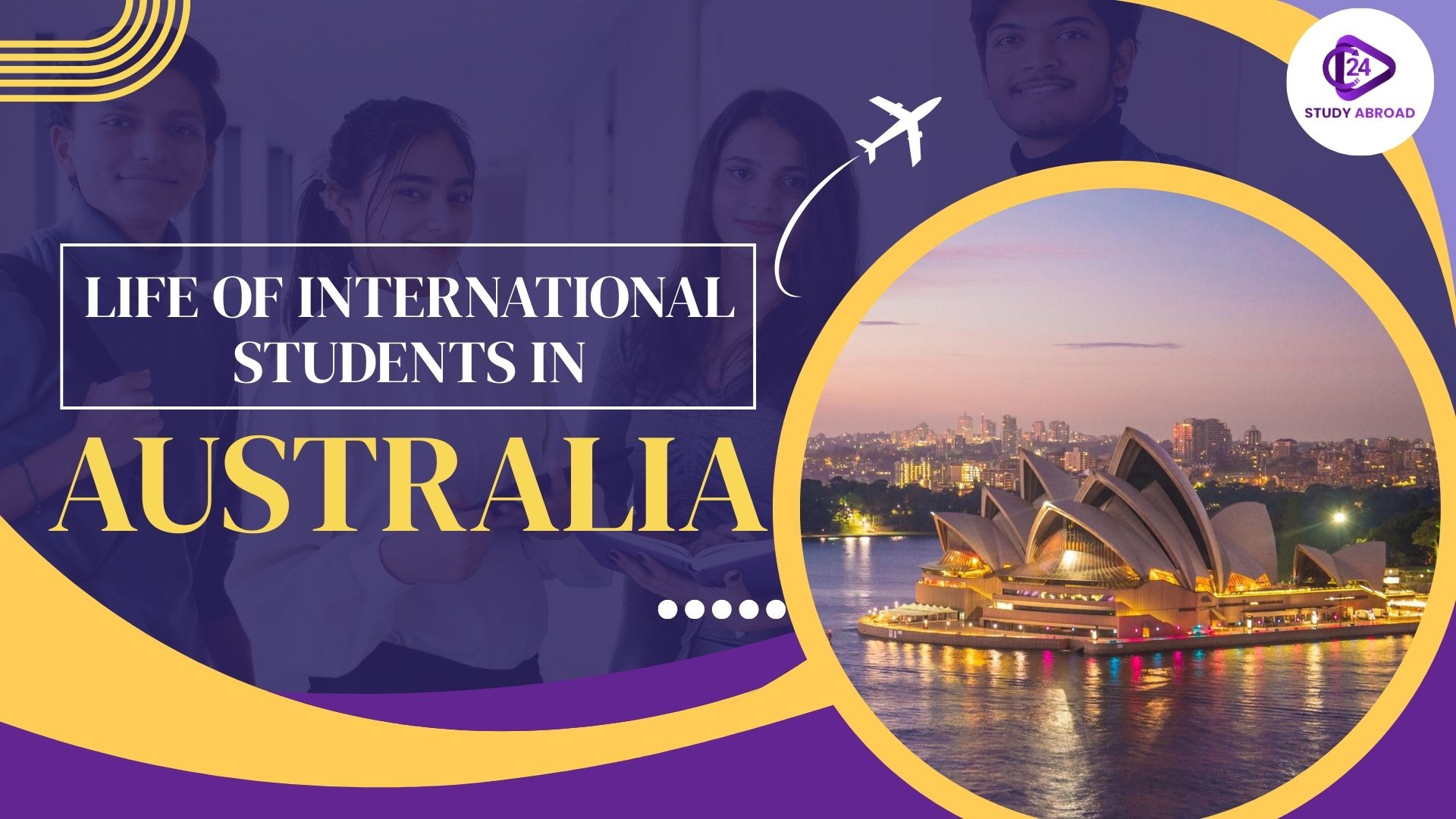
Life of International Students in Australia: Cost of Living, Climate, Culture, Housing & Safety
Australia has emerged as one of the most desirable places of study to international students. Australia is a preferred location with world-class universities, globally recognised degrees, part-t...
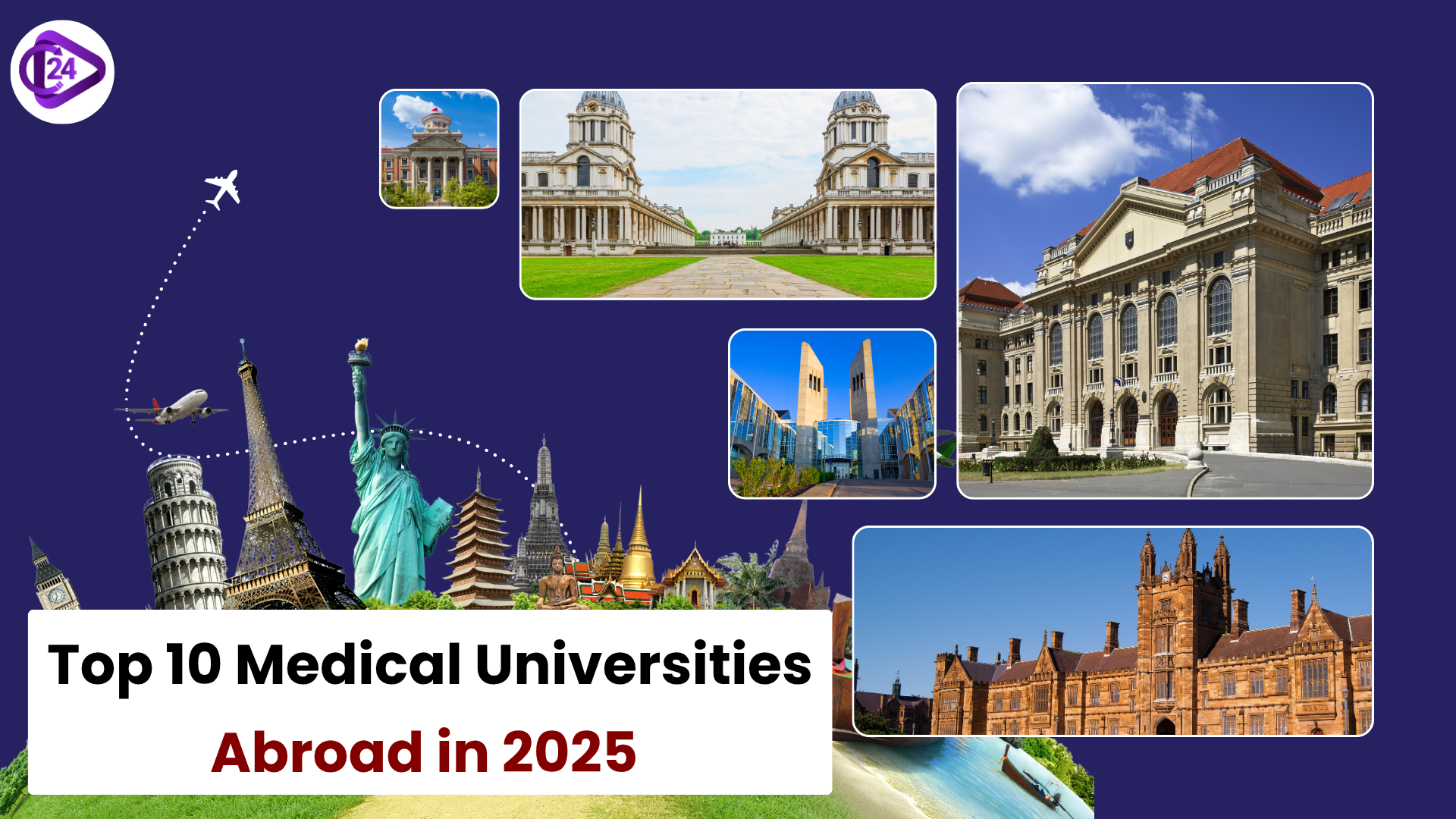
Top 10 Medical Universities Abroad in 2025
In order to study medicine at a foreign university, it is possible to access high-quality training, advanced research, and a career at the international level. With the increasing needs of skill...

